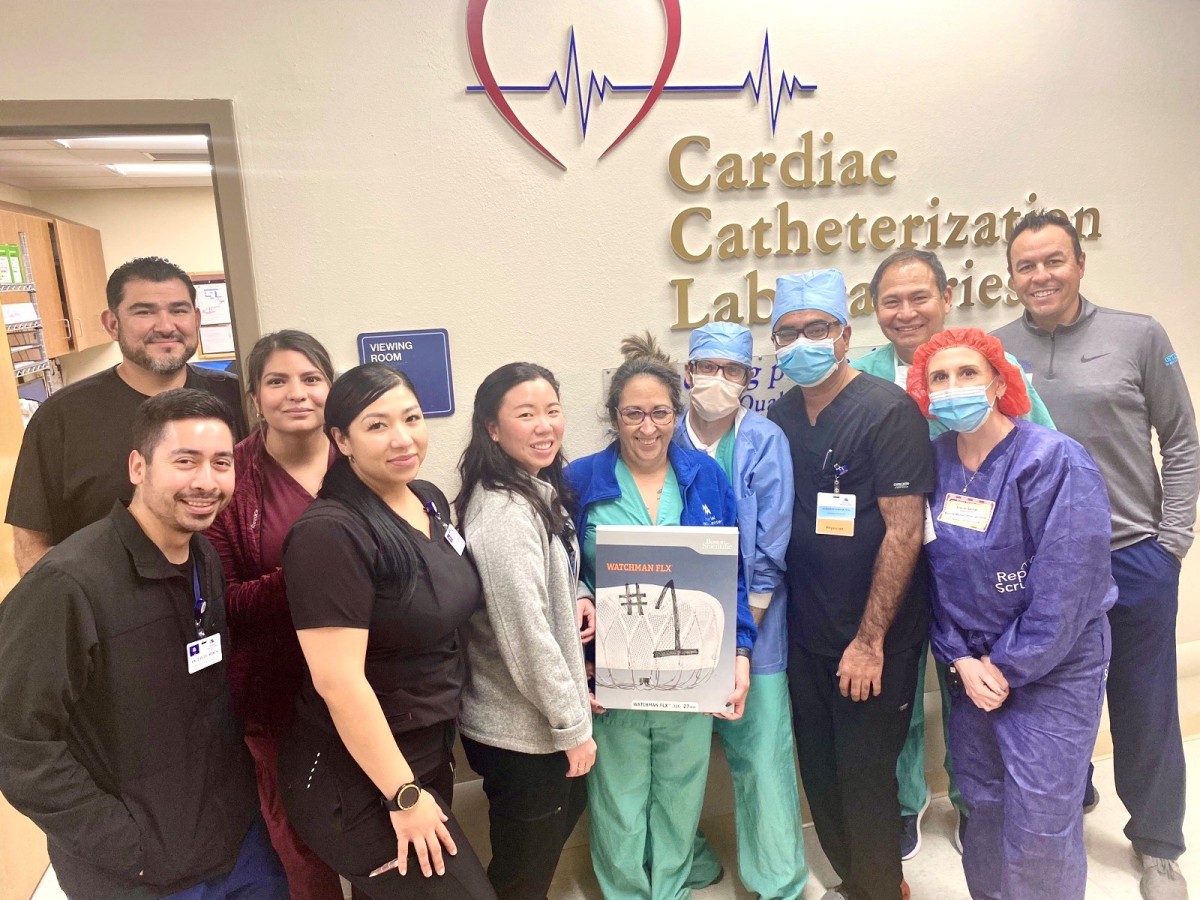MMC Completes Southern New Mexico’s First Successful Implant of WATCHMAN Device
December 13, 2022

LAS CRUCES, NM (December 13, 2022) – Memorial Medical Center’s Cardiovascular Services team, led by Interventional Cardiologist M. Rizwan Sardar, MD, FACC, FSCAI, and Annette (Minnsun) Park, MD, has successfully performed Southern New Mexico’s first implant of the WATCHMAN FLX™ Left Atrial Appendage Closure (LAAC) Device on a patient with atrial fibrillation (AF).
Memorial Medical Center is the only facility in Southern New Mexico to offer the WATCHMAN device, built upon the most studied and implanted LAAC device in the world, as an alternative to the lifelong use of blood thinners for people with AF not caused by a heart valve problem (also known as non-valvular AF).
An estimated 7 million Americans are estimated to be affected by AF – an irregular heartbeat that can feel like a quivering heart. People with AF have a five times greater risk of stroke than those with normal heart rhythms. The WATCHMAN FLX device closes off an area of the heart called the left atrial appendage (LAA) to keep harmful blood clots that can form in the LAA from entering the blood stream and potentially causing a stroke. By closing off the LAA, the risk of stroke may be reduced and, over time, patients may be able to stop taking their blood thinner.
The latest-generation technology has a new design to help treat more patients safely and effectively to ensure the best long-term outcomes.
“Building upon the well-established WATCHMAN technology, the WATCHMAN FLX device serves as a safe and effective stroke risk reduction alternative for patients with non-valvular AF, especially those with a compelling reason not to be on blood thinners,” said Dr. Sardar. “I’m proud to have performed the first implant of this device at our institution as it offers another patient a potentially life-changing stroke risk treatment and will allow us to treat a broader range of patients going forward.”
The WATCHMAN technology has been implanted in more than 200,000 patients worldwide and is done in a one-time procedure. It’s a permanent device that doesn’t have to be replaced and can’t be seen outside the body. The procedure is done under general anesthesia and takes about an hour. Patients commonly stay in the hospital overnight and leave the next day.
More information about the WATCHMAN program at Memorial Medical Center is available online.
About Atrial Fibrillation
Atrial fibrillation (AF) is a heart condition where the upper chambers of the heart (atrium) beat too fast and with irregular rhythm (fibrillation). AF is the most common cardiac arrhythmia, currently affecting up to 6 million Americans. Stroke is the most common complication of AF, and AF-related strokes are also more frequently fatal and disabling. In people with non-valvular AF, more than 90% of all stroke-causing clots that come from the heart form in the LAA. The most common treatment to reduce stroke risk in patients with AF is blood-thinning medication, such as warfarin. While very effective at reducing the risk of stroke, blood thinners increase the risk of serious bleeding over time and come with certain requirements and restrictions.
